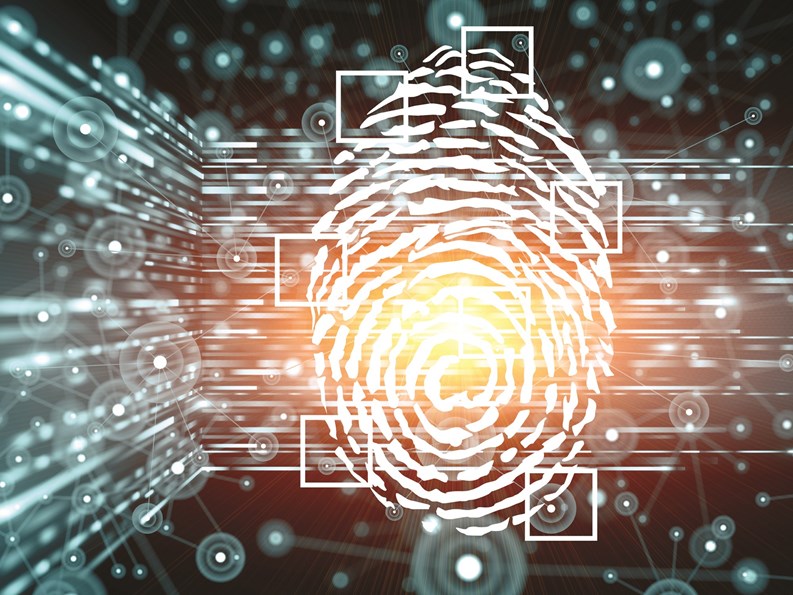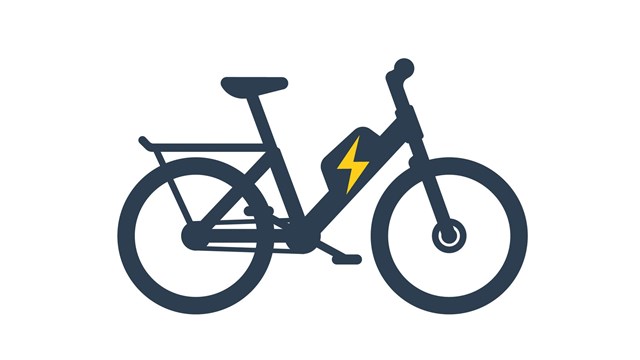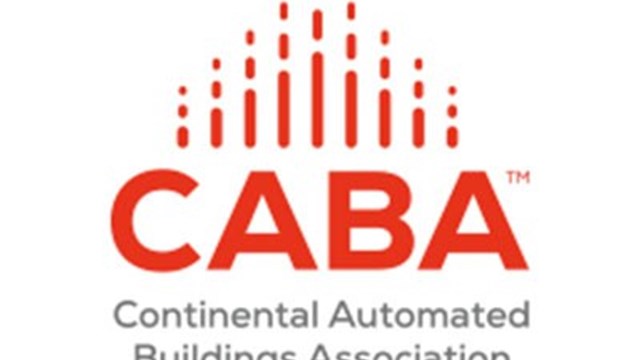Few things are more precious to people than feeling safe and secure in their homes. We all want to feel protected from crime and prepared for any emergency that might arise, and in urban co-op and condo communities, the issue of security and emergency preparedness is particularly important.
The reasons for this are obvious: cities have higher crime rates per capita than suburban and rural communities, and life in a multi-family building means that an individual resident can't control who enters a building the way someone who owns a house can. In addition to that, high-rise buildings present more complicated evacuation and emergency logistics challenges than smaller structures.
Realizing this, says Terence B. Hoey, CCP/PSP of Hoey & Associates Inc., a New York City-based security management consulting firm, "There's a higher degree of tolerance on the part of residents when it comes to participating in improving procedures and also in drills and other issues of preparedness."
There are lots of ways to protect and prepare a building, and what managers and boards need to do is determine the needs and desires of their residents to provide the safety they expect.
On a small scale, the nuts and bolts of keeping a building secure is preventing crime by keeping unwanted intruders away. Various devices can help keep a building safer: alarms, cameras, and access-control devices such as card scanners. Technology is always getting better, but the impact of simple, old-fashioned watchfulness and a real, live guard can't be underestimated. Though cost is a factor, many co-op and condo buildings in the city want the services of on-site security guards.
"Technology is very important," says Mark Lerner, Ph.D. president of EPIC Security Corp., "but a lot of people, I feel, put all their eggs in one basket with electronic security equipment. Some of the latest gadgets are very sophisticated - fingerprint readers, eye readers - they're impressive, but without security personnel, electronics deter crime to a lesser extent than on-site personnel do."
"If you have an access-control system, people claiming to be UPS or Con-Ed can be on video, but by the time the crime is discovered, they're long gone," Lerner says. "I'm not saying people should get rid of their electronics - it's all very important - but they should remember there's a reason people add to their budgets for security personnel. Having a person manning the building greatly reduces the crime to a building."
And what if your building simply can't afford to hire another staff member? Vigilance and being observant can save both dollars and lives, according to Bill Morelli, executive vice president of Homeland Safety Inc., a security consulting firm based in Lower Manhattan.
"The NYPD does have a program that they do that's geared towards doormen and building employees," says Morelli. "What they're looking at are specific security threats - like how do you recognize somebody? What makes somebody suspicious? What do you do about deliveries and stuff like that?"
"Building employees just need knowledge," Morelli continues. "They need to have a role in their building's security. They need to know if something happens, what do you do? An employee should be checking out any monitoring or sensor equipment that you have. Those are some of the things that they should be doing. They basically need to have the role and know what's expected of them - because otherwise, it could be a free-for-all."
Even with a guard and an observant staff, there are some crimes that are almost impossible to prevent. Though neighbor-on-neighbor crime in co-ops and condos is pretty rare, managers and boards need to be aware of who is entering their building.
"An owner or manager should always be concerned about the people within their building," says Hoey. "The demographics of a small building may very well mimic that of a community at large. Therefore you can almost surmise there will be some criminal element."
The police department aren't the only professionals willing and able to help buildings work out the best security program for themselves. With concerns about security forward in people's minds, many boards and management companies are enlisting the help of professional security and emergency preparedness firms to assist them in formulating security plans and what to do should an emergency arise.
According to Morelli, security companies generally do a complete building assessment to examine a building's infrastructure and facilities, plus a tenant assessment to identify any disabled, elderly and very young residents and their special needs. They also assess the experience level of the building staff and provide appropriate training - along with emergency preparedness training for residents that includes family safety plans, emergency supply kits and basic first aid.
Consultants also prepare the managing agent to act as a liaison, to know about first aid, evacuation and emergency techniques, how to perform basic drills, to monitor the duties of employees during emergencies, and to properly maintain emergency equipment; they also teach about how to prepare emergency kits which residents should have on hand in the event of any emergency.
"We look at the infrastructure itself," says Morelli. "What you want to see is a good communications system so that everybody can be talked to concurrently. Where are the air intakes? Those are very important, especially if you have a chemical or biological type of emergency. You want to look at all emergency lighting. From there, you go back to the board with a set of prioritized recommendations - people can't do everything all at once."
Knowing how to react to an emergency is of utmost importance, agrees Hoey. "Preparedness - should there be an incident that would affect the utilities, water, telephone or electrical distribution - is very important. To be prepared in terms of getting the backbone of a building back up online is most important, but individual preparedness is as important as a manager's preparedness in the event of an incident. "It's incumbent on all residents - and even visitors if they're there for longer periods - to have some plan of how to respond."
There are guidelines from the federal, state and city governments for how to react during various emergencies. Hoey recommends the website of the Federal Emergency Management Agency (www.fema.gov) as a resource in how managers and residents can learn how to prepare for emergencies. The state management office and the New York City Office of Emergency Management also provide guidelines.
Buildings are required to inform residents of emergency exits and to provide instructions in how to evacuate the building in case of emergencies, but it's important to conduct actual, real-time drills so that residents are reminded of how to react in case of a real emergency.
"I would recommend to an owner or manager that they review their plans annually and exercise them semi-annually, at least," Hoey says. The idea is to have people prepared for different circumstances in which an emergency may occur: Daytime versus nighttime, cold weather versus warmer weather.
Another big part of training for residents has to do with family emergency planning, says Morillo, "Because chances are people aren't going to be home when there's an event. You have to have a plan that says how you're going to communicate, who you're going to talk to, where you're going to meet, what type of stuff you ought to have."
Along with technology and professional planning, another way for buildings to provide their residents additional security and discourage crime is to establish or join an existing neighborhood watch program.
One group committed to helping co-op, condo, and rental communities help themselves is the Association for a Better New York (ABNY), which runs an anti-crime radio network called ABNY's Radio Connection. Participating in the network connects each member building to its own central base station, which is monitored by a police officer.
"It bypasses 911," says Jo-Ann Polise, program director for the ABNY. "You're not speaking to an operator, so you're not having your call prioritized and put into a queue by a 911 operator. When you report a situation over the radio, a police officer monitoring the frequency at the base is going to immediately broadcast your situation over the PD frequency, so any foot patrol or sector car is going to be able to respond immediately."
Another benefit is that calls made over the network can be heard by all the other members of the network.
"If you're reporting a situation over your radio, any other participant who happens to be monitoring their radio is going to hear what you are reporting - and that could be critical if they're in your vicinity," Polise says. "It could be critical if you are reporting a crime that has just taken place and you are giving the description of someone who's been seen fleeing the scene."
"We've actually had situations where the description of a vehicle or a person is put over the air and other participants who were monitoring their radio were able to help track fleeing suspects."
ABC radios are registered so that the officer at the command station can read the address, cross streets, precinct and phone number. It costs $365 per year, which Polise says covers administration costs, upgrading equipment and training.
Polise says doormen and guards at condos and co-ops tend to respond well to the network. "They take the radio very seriously - they like it because it gives them a little extra sense of security."
Hoey also recommends working with local law enforcement, fire departments, building inspectors and other emergency workers to discuss different types of incidents and who to contact in different situations, and says that people are becoming more aware of the potential for these types of emergencies and this awareness is influencing neighborhood watch groups.
"I think the neighborhood watch groups that sprung up across the country during the 1960s and 70s have matured into not only crime-watch groups, but also preparedness-watch groups. In upstate New York, the citizen-watch group has become a sort of preparedness council, where they're training individuals for a broader spectrum of events and working with local agencies in the event of an incident."
Whether your building is a Park Avenue showpiece or a more modest community, as with anything else, cost is a major consideration for managers and residents in when it comes to security. Investing in security equipment means an initial investment (from about $9,000 to upwards of $20,000 depending on the equipment and the building) and occasional maintenance costs. Hiring guards essentially means taking on at least one salaried employee. Twenty-four-hour protection is the equivalent of three full-time employees, plus weekends.
Three years later, 9/11 still remains in people's consciousness, and though residential buildings don't appear to be a target of terrorists, people seem willing to spend more money on security as a result of that tragic day.
"Since 9/11, everyone thinks about security," Hoey says. "Before that, co-ops, boards, managing agents and superintendents were concerned with the security of their buildings. Now the general public thinks more about security. Since 9/11, there's been about a 25 percent increase in the budgets, I would estimate, in residential security personnel."
There are some security measures that buildings must meet in accordance with the law, such as providing two-way intercoms and locks on the front doors, but buildings are not legally required to hire guards. But if your co-op or condo does hire a guard, there are requirements that have to be met. New York State requires guards to be licensed, to undergo specific training, to be drug tested, fingerprinted and to undergo a background check. These standards have been in effect for a while, but even 9/11 didn't result in all guards meeting the state's standards. In the summer of 2002, the New York Daily News reported that the state hired companies to protect the Statue of Liberty, and that those companies hired unlicensed individuals - even some former convicts - as guards.
"People should be very careful when they decide to get a security guard,"
Lerner says. "Co-ops and condos should check for licensing, liability insurance, fidelity bonding and workman's compensation insurance for employees. A licensed company is required to perform checks on and register their guards. Every properly registered guard will have a New York State photo ID card with a registration number from the company he's working for. If a client is concerned about a guard, they can ask to see the card with the number and the number can be verified by the state on the Department of State's website, (www.dos.state. ny.us)."
Bringing in (and paying for) consultants, contemplating the use of a guard, mapping out emergency evacuation plans and holding real-time drills sound like a lot of work - and it is. But the matter of keeping residents and their property safe is no minor issue, and according to Polise, managers, board members, and building staff aren't just going through the motions when planning for the safety of their buildings and the people in them. "They are people who take their jobs very seriously," says Polise, "and they want to do the best job they can."
"Accidents happen," says Morelli in closing, "and they are called accidents because people don't expect them to happen. But they happen at the worst time. You have no control over what's going to happen; the best you can do is mitigate or minimize your risk by having some level of education and preparedness already taken care of."







Comments
Leave a Comment